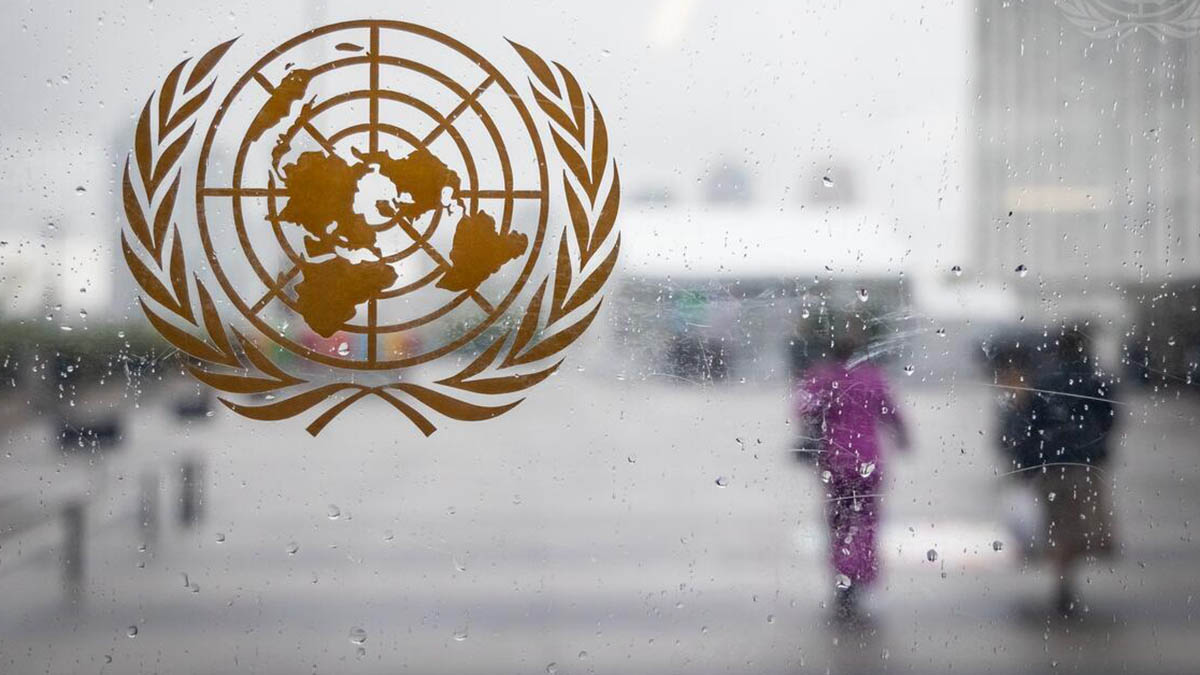IMPACT
UN votes to create ‘historic’ global tax convention despite EU, UK moves to ‘kill’ proposal
Advocates celebrated the resolution as a key step toward better representation for developing countries, but warned wealthy countries against further attempts to delay the much-needed reforms.

The U.N. General Assembly has voted overwhelmingly for the organization to develop a global tax framework, despite last-minute attempts to derail the plan from wealthy countries including the United Kingdom, the United States, and the entire European Union bloc.
In what advocates hailed as a “historic victory,” countries voted 125 to 48 to adopt a resolution tabled by Nigeria last month on behalf of African member states, calling for a U.N. tax convention that could drastically change how global tax rules are set.
Nine countries abstained from the vote, which was held in New York on Nov. 22.
The unprecedented step is the latest development in a heated debate over whether the United Nations can deliver better representation on international tax matters for developing countries than the Organisation for Economic Co-operation and Development.
This resolution is not just a policy document, it is a testament to our collective resolve for a fairer, more resilient, global economy. — U.N. representative Tijjani Muhammad-Bande
Ahead of the vote, Nigeria’s permanent representative to the U.N., Tijjani Muhammad-Bande, described the resolution as a “beacon of hope.”
“As we navigate through a world marked by unprecedented challenges, economic uncertainties, [the end] of the COVID-19 pandemic and the present climate crisis … the role of effective, inclusive international cooperation becomes more crucial than ever,” Muhammad-Bande said.
“This resolution is not just a policy document, it is a testament to our collective resolve for a fairer, more resilient, global economy.”
For decades, the OECD — a group of 38 mostly high-income countries that includes the U.K. and the U.S. — has dominated international tax policy. But in recent years criticism over the outsized power wielded by wealthy countries in its closed-door decision-making has grown, including at the top levels of the U.N.
Earlier this year, U.N. Secretary-General Antonio Guterres said in a report that enhancing the U.N’s role in shaping policy was “the most viable path for making international tax cooperation fully inclusive and more effective.” That language was echoed in the newly adopted resolution.
Since the resolution was filed in October, negotiations over the policy document have supercharged tensions between U.N. member states. One negotiator from a developing country accused diplomats from the EU and the U.K. of ignoring Guterres’ recommendations and trying to block the resolution.
“They’re rubbishing that report and they’re out to rubbish the entire process and just kill it. They don’t want to bring taxation matters here [to the U.N.],” the person told the Financial Times anonymously.
In a last-minute amendment to the resolution, the U.K. proposed to remove any mention of a “convention” and instead backed another, weaker option outlined in Guterres’ report.
“If we’re to deliver an improved tax system through the U.N. community, there must be the broadest possible buy-in from the start,” the U.K. representative said.
The amendment was defeated nearly two to one, with 107 countries voting to reject what transparency advocates described as an effort to “defang” the resolution.
“Tax havens and corporate lobbyists have had too much influence on global tax policy at the OECD for too long,” said Alex Cobham, chief executive of the Tax Justice Network advocacy group in a statement following the vote.
“Today, we start to take back power over global tax rules that affect all of us.”
Next year, all U.N. member states will be invited to join the intergovernmental negotiation process, regardless of their vote.
Adopted!🎉 #UNvote #UNTaxConvention pic.twitter.com/iejFO0WAd7
— Tax Justice Network (@TaxJusticeNet) November 22, 2023
‘A truly historic shift’
The secretary-general’s report was mandated by a separate resolution adopted at the end of last year, which called for the U.N. to scale up its efforts to combat tax evasion and illicit financial flows. In the report, Guterres acknowledged OECD efforts to engage non-members, but said that “many of those countries find that there are significant barriers to meaningful engagement in agenda-setting and decision-making.”
In response, Manal Corwin, director of the OECD’s Centre for Tax Policy and Administration, told ICIJ that the organization was proud of its “proven track record enabling significant changes in the international tax landscape that have benefited developed and developing countries.”
The OECD counts among its achievements the 2021 global tax deal between more than 130 countries, which included a minimum 15% corporate tax rate for multinational corporations. At the time, it was hailed by negotiators as a landmark step towards curbing corporate tax avoidance, but its implementation has been beset by delays.
In September, a group of finance ministers from the EU warned that a U.N. tax convention would risk duplicating OECD-led efforts. That position contradicted the European Parliament’s support for a U.N. tax convention in its report on “lessons learnt from the Pandora Papers” in response to ICIJ’s 2021 tax haven investigation.
Other ICIJ investigations, such as the Paradise Papers and Lux Leaks, have highlighted the staggering scale of corporate tax dodging by some of the world’s biggest companies. The Paradise Papers exposed tax maneuvers by more than 100 corporations, including Nike and Apple, the latter of which shifted profits around the world to accumulate $252 billion offshore.
In its 2023 State of Tax Justice report, the Tax Justice Network warned that countries could lose nearly $5 trillion in tax revenue over the next decade as multinationals and wealthy individuals continue to use tax havens to whittle down their tax bills. The report identified four countries among the jurisdictions enabling the loss of public money: the U.K., the Netherlands, Luxembourg and Switzerland. All four are also members of the OECD.
In a statement, Tove Maria Ryding, tax coordinator at the European Network on Debt and Development, said the adoption of the new U.N. tax resolution marked “a truly historic shift” and criticized the “minority group of mainly OECD countries” that voted against it.
“This includes the EU countries, which claim to be committed to international tax cooperation, but proved the exact opposite today by voting against the Africa Group’s resolution,” Ryding said. “By doing that, they are not only undermining a fair and effective global tax system, but also acting against the interests of their own citizens, who pay a high price when wealthy individuals and big corporations use international loopholes to dodge taxes.”
Next step: More negotiations
The new resolution calls for the creation of an ad hoc intergovernmental committee open to all U.N. member states with a bureau of no more than 20 members, elected with gender and regional balance in mind, which will be tasked with establishing the terms of reference for “a United Nations framework convention on international tax cooperation” by August 2024.
Their work must take into account “the needs, priorities and capacities of all countries, in particular developing countries,” according to the resolution.
The resolution also urges the committee to take a “holistic” approach to setting the terms of reference, considering “interactions with other important economic, social and environmental policy areas,” while also focusing on specific priorities “such as measures against tax-related illicit financial flows.”
At a press conference following the vote, Ryding explained that negotiations on the tax convention can begin only once the terms of reference are agreed to, which could take up to a year.
“[If] OECD countries show the same attitude as they did today, it’s going to take forever to get a truly global agreement, which is why we really want to stress the importance of having all those countries show a true spirit of not just cooperation, but also urgency,” Ryding said.
“All countries are losing large sums of money because of international tax dodging, so we really have no time to waste.”
Correction Nov. 23, 2023: This story was updated to reflect that the new ad hoc intergovernmental committee will be open to participation by all U.N. member states, though its bureau will be limited in size.


